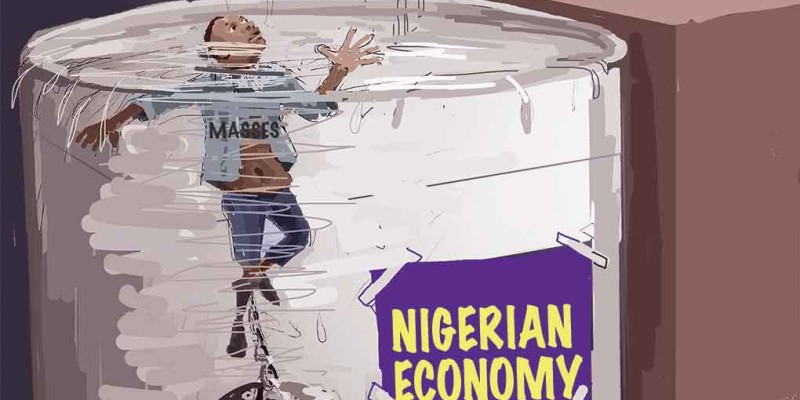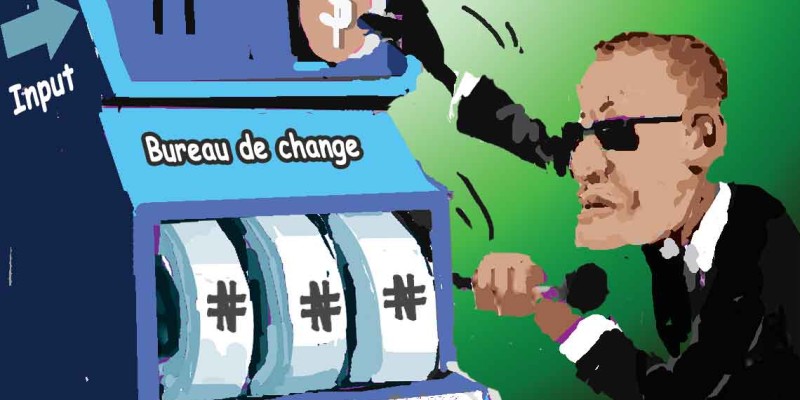Font size:
Print
CRUDE OIL AS SCAPEGOAT
BY: LES LEBA (Email: llesleba@hotmail.com)
Weblink: www.betternaijanow.com
This year marks the 50th anniversary of our participation in the oil industry as a major producing and exporting nation. During this period, we have witnessed the transformation of deserts into tourist oasis and investment destinations with oil money in countries which were truly less favoured half a century ago as potential industrial and development hubs. Today, the people of the oil producing arid zones of Saudi Arabia, Abu Dabi, Jordan and Kuwait enjoy a much higher standard of living and live in relatively more secure environments than most Nigerians, who share a common endowment of exploitable crude oil reserves but live in abject poverty and squalor inspite of the additional bonus of vast regions of arable land and other myriad untapped mineral resources locked under our feet! Indeed, our revenue from crude oil alone has exceeded trillions of dollars since 1956; but ironically, this golden goose has often been labelled as a curse on our nation! Critics of the impact of oil on our development maintain that the ship of state lost bearing once we started reaping the bountiful harvest of the oils under the creeks of the Niger Delta.
First, our federal constitution, which guaranteed a large degree of autonomy and independence for the federating units was expeditiously jettisoned in favour of a unitary military style of command which stripped the regions of most powers so that the central government could seize control of the nation’s oil reserves and revenue and disburse this as political favours designed to win majority ethnic support for the entrenchment and consolidation of dictatorship. This wealth sharing rather than wealth creation philosophy of government soon killed the work ethic as the nation was dismembered, by military fiat rather than consensus, into states which could only survive on the expected monthly largesse from the centre.
Indeed, the agitations and demands for additional state creations have become part of the political strategy for demanding a more sizeable share from the oil revenue realized from the lands and the shores belonging to the, for long, voiceless minority ethnic groups of the Niger Delta. In the light of the above, some observers maintain that crude oil can best be seen as a curse on our nation, because its advent signaled the demise of other employment, income and export revenue generating engagements of our people, such that, for example groundnut pyramids in Kano have become a mirage; cocoa and rubber plantations in the rich agricultural regions of the west have been reclaimed by the jungles, while palm produce which was the mainstay of the eastern region has now been relegated to the backwaters of commercial life and we are now part of the wretched of the earth!
On the other hand, charitable observers insist that the advent of crude oil and the sizeable revenue-derived from its export should not be blamed for our underperformance in the welfare scale of our people and the economic development of Nigeria. These observers finger our heavy dependence on the monocultural export of crude oil as the real villain of our underdevelopment. They argue that the country’s economy will grow if we also cultivated several additional sources of export revenue, such as, the revival of our moribund agricultural export commodities such as cotton, groundnuts, cocoa, rubber, palm produce, etc, and exploit other industrial linkage opportunities which would give us comparative advantage in the export market.
The foregoing argument sounds very plausible on the surface, but the problem is that those who paint the above picture of what we have to do are unable to draw the map of how we will get to El Dorado inspite of our skewed federalism which promotes sharing rather than wealth creation! So long as the states have to hold out a begging bowl for ‘federal allocation’ every month, there will continue to be a dependence syndrome on the parasitic states and less motivation to look inwards for internally generated revenue for the development of each state’s natural resources for the improved welfare of its citizens.
Furthermore, the insistence that we must have a multicultural export base before we can develop may not have economic justification especially in view of the trillions of dollars of oil revenue accruing over the years to the nation’s treasury. Besides, several nations all over the world do very well, thank you, on plain tourism or monocultural export commodities, such as coffee, gold, copper or the cultivation of excellence in shipping, banking or such other financial services. The truth is that export dollar earned legally from crude oil has the same value as the dollar earned from a multicultural export base! The argument that crude oil dollar is easy unearned money which does not have much catalytic linkage effect on other sectors of the economy is rather simplistic; it is not the crude oil dollar that is at fault, the blame should be on the failure of the owner of that dollar to convert its value in a meaningful way with the sincere objective of improving the lot of our people. If the various local and international media reports of the boundless limits of corruption in Nigeria are true, then it is possible that over 50% of annual oil revenue may have been stolen in officially supported and coordinated scams.
All such stolen loot stashed away abroad or converted into personal wealth accumulation locally constitutes a rape on the chances of our development and the emancipation of our people from the clutches of poverty. The high level of unemployment and poverty in Nigeria is an indication that ill-conceived and self interest-driven economic and monetary policies by successive administrations may have frittered away much value from the 50% balance dollar revenue (after white collar theft) accruing from crude oil export over the years.
The fault, we must accept, is not that of the advent of crude oil, mono product export or resource endowment. We cannot be sincere if we expect a multicultural export base, low unemployment, high industrial capacity utilization, increasing consumer demand and improved welfare if we cannot bring commercial bank lending rate to below 10% instead of the current level of over 20%. It is bizarre for the central bank to sustain its bank control rate (MRR) at its current 14% and also compete against industry and commerce for funds in the market by its offerings of treasury bills and bonds at over 10% and 17% respectively.
It is national deceit to promote such an interest rate structure as a platform for a benevolent or enabling economic environment. In their quiet moments; the helmsmen and women at the CBN and the Ministry of Finance know this to be true but they hope that long suffering Nigerians will continue to blame the monocultural export of crude oil and rising petrol prices for their woes! The truth, however, is that government’s unilateral monthly conversion of crude oil dollar revenue to naira before sharing to the three tiers of government is the real devil in our monetary framework and the cause of our rising poverty in the face of excess crude oil reserves! It is as simple as that!
SAVE THE NAIRA, SAVE NIGERIANS!








